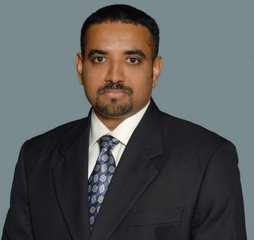Our ITOP (Information Technology for Organizational Performance) Prof, in one of his recent classes talked to us about Ram Charan and his latest book: “What the CEO wants you to know”
http://www.amazon.com/What-CEO-Wants-You-Know/dp/0609608398
This brought back memories of my good fortune to hear Ram C speak when he had visited the Offshore Development Centre of my ex-employer in Trivandrum last year. And believe me, it was a packed house with people literally climbing over the walls and occupying each and every inch of floor space that was available.
Ram Charan’s is an inspiring story from his humble beginnings in India to Harvard, from where he went on to attain business super stardom as the personal coach of phenomenally successful CEOs like Jack Welch.
His schedule as extracted from a Fortune article introduces him the best, even though it might make your head spin.
I should tell you where I've been the last few weeks," he began in heavily accented English. "I go to India on the Friday of the week before Thanksgiving. I am Sunday morning in Bombay. Monday morning I am in Delhi. Wednesday I'm in Bombay. Thursday I'm in Bangalore. Saturday I'm in Trivandrum. Wednesday I'm in Johannesburg. Friday morning, at seven, I am in New York. I have a two-hour meeting with a CEO who has flown in to see me. I have two more meetings and I fly out that night to Dubai. I am in Dubai on Sunday and Monday, then I come back here. On Thursday night I fly out to Jubail, Saudi Arabia. Then I come back here. Tuesday morning I have a whole-day schedule in New York. Tuesday night I go to Milwaukee. I came from Milwaukee last night. They diverted my plane so I had to stay in Pittsburgh. I had a meeting this morning in Philadelphia. I had three meetings here in the afternoon. And I'm here tomorrow, with GE. Then an hour-and-a-half phone call. Then I'm going out tomorrow night to West Palm Beach. Monday morning I have a breakfast meeting in New York. And then I'm flying out to Perth, Australia."
The most striking aspect of his personality as per the author and the one which instantly appealed to me was that, he never had any goals. He never set out to become a globetrotting consultant, any more than he dreamed of attending Harvard Business School, or becoming a professor, or even so much as one day earning a living beyond the small city in India where he was born.
Now, that is a goal worth shooting for.
Here is the link to the original article.
http://money.cnn.com/magazines/fortune/fortune_archive/2007/04/30/8405482/index.htm
He has also been covered as a Man of Mystery by Fastcompany.com
http://www.fastcompany.com/magazine/79/ram.html
The real beauty of his approach is how he makes an Indian outlook work in a global career spread all across the globe.
In “What the CEO wants you to know” he teaches you what he calls Business Acumen and how to use it to navigate the high seas of global businesses. To him, your neighborhood street vendor and the global CEOs think and talk very much alike using this universal language of Business Acumen.
He draws parallels between how they run their businesses in much the same way using sales forecast, inventory, merchandising, advertising, competitive strategy, customer focus, product mix, profit margin and last but not the least cash flow. And when it comes to measuring their success, they have their eyes firmly on Cash generation, Growth and Return on Investment.
For measuring returns he establishes an intuitive formula R=Margin * Velocity, where Margin is a measure of the profit that can be made in one transaction and Velocity, the number of such transactions that you can possibly make. For eg:- Even though Dell works with wafer thin margins of 3 to 4% on a transaction, it manages whopping returns close to 250% on it’s invested capital, only because it turns over its inventories with velocities close to 50 a year.
So, as a leader, where can you put all this to use? You can begin by studying your company’s business inside-out, almost as well as your CEO. Daunting? No…Here is all that you need to know:
- What were your company’s sales during last year?
- Is the company growing? Is the growth rate growing, flat or declining?
- What is your company’s profit margin? Is it growing, declining or flat?
- How does your margin compare with your competitors? How does it compare with other industries?
- What is your company’s inventory velocity? What is its asset velocity?
- What is your company’s return on assets?
- Is your company’s cash generation increasing or decreasing? Why is it going one way or the other?
- Is your company loosing or gaining against its competition?
These tell you all about your company and its challenges and with these answers at your fingertips, you are armed and ready to make a difference.
The rest is all about putting the right people in the right jobs, which might involve a lot of incremental changes and dealing with mismatches as we go along and also coaching people, not just on the business side but also on behavior. And your edge in execution comes from synchronizing their efforts and releasing and channeling their energy toward the right set of business priorities.
Reading this book, as I am going through the rigor of business education brought out the simplicity of it even more. If all you need to know about running successful businesses can be told in a little over 125 pages, then it can’t be all that bad, right? Yeah…right….



No comments:
Post a Comment